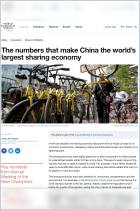
Recommendation
China is a challenge for Western tech companies. One by one, giants such as Facebook, Twitter, Google and Uber came and went. They all managed to create lucrative markets but were unable to hold onto them and were eventually ousted by complex government regulations and aggressive competitors. Airbnb, on the other hand, has been growing steadily since opening China operations in 2015 and is not showing signs of slowing down. In fact, China is becoming the company’s biggest market and an important experimental playground to test new product ideas. Having spoken to Airbnb co-founder Nathan Blecharczyk, TMTPost reporter Gao Mengyang provides a thorough overview of the company’s recent developments and plans for future growth. getAbstract highly recommends this case study to current and future travelers in China and to managers – especially in the tourism industry – who’d like to find out how to succeed in China.
Summary
About the Author
Gao Mengyang is a columnist at TMTPost reporting on travel, hospitality, ride-sharing and real estate.





















Comment on this summary or 开始讨论